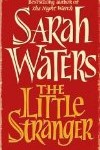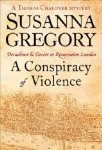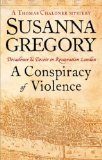The Fingersmith is my second favourite book of all time (after A Fine Balance
), and so I was so excited about the release of Sarah Water’s new book that I ordered a copy from America, just so I could read it a few weeks before it’s UK release.
The Little Stranger is a Gothic, ghost story set in rural Warwickshire just after WWII. The central character is Dr. Faraday, who one day is called to a crumbling mansion to treat a maid who is so scared by things she has seen in the house that she wants to leave. Dr. Faraday is intrigued, by both the house and the Ayres family who live there, that he makes an effort to return to Hundreds Hall as often as he can. Increasingly strange events occur in the house, frightening and mystifying everyone who witnesses them.
The Little Stranger is very different to Fingersmith in both the style of writing, and plot development. The plot was linear, very easy to follow and structured like a fast-paced thriller. The quality of Sarah Water’s writing is still high, but I think that this book will be much more accessible to the general public, and slightly disappointing to her old fans. The Little Stranger has much more in common with books like The Thirteenth Tale or The Seance
, both of which I really enjoyed reading too, but don’t require as much thought as Water’s earlier books.
I was slightly disappointed with the ending, as although it wasn’t predictable, it didn’t have any of the clever plot twists that she is famous for. I shouldn’t really complain though, as the book had me captivated throughout . All the characters were well developed, and the storyline was reasonably plausible. It was a gripping, spooky tale – perfect for a cold, dark Autumn night.
Recommended.
![]()





